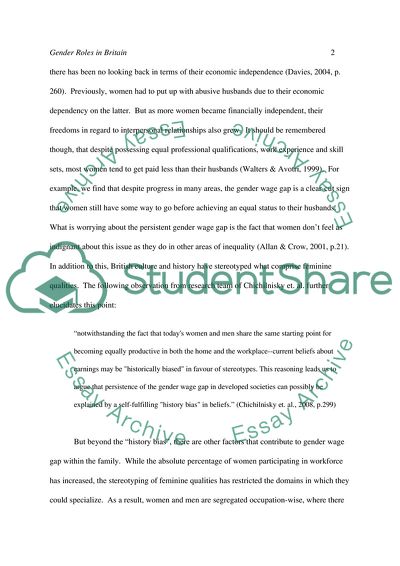Cite this document
(Changing Roles of Men and Women in Families in Britain over the Past Coursework - 1, n.d.)
Changing Roles of Men and Women in Families in Britain over the Past Coursework - 1. Retrieved from https://studentshare.org/gender-sexual-studies/1743516-write-a-report-on-the-changing-roles-of-men-and-women-in-families-in-britain-over-the-past-half-century
Changing Roles of Men and Women in Families in Britain over the Past Coursework - 1. Retrieved from https://studentshare.org/gender-sexual-studies/1743516-write-a-report-on-the-changing-roles-of-men-and-women-in-families-in-britain-over-the-past-half-century
(Changing Roles of Men and Women in Families in Britain over the Past Coursework - 1)
Changing Roles of Men and Women in Families in Britain over the Past Coursework - 1. https://studentshare.org/gender-sexual-studies/1743516-write-a-report-on-the-changing-roles-of-men-and-women-in-families-in-britain-over-the-past-half-century.
Changing Roles of Men and Women in Families in Britain over the Past Coursework - 1. https://studentshare.org/gender-sexual-studies/1743516-write-a-report-on-the-changing-roles-of-men-and-women-in-families-in-britain-over-the-past-half-century.
“Changing Roles of Men and Women in Families in Britain over the Past Coursework - 1”, n.d. https://studentshare.org/gender-sexual-studies/1743516-write-a-report-on-the-changing-roles-of-men-and-women-in-families-in-britain-over-the-past-half-century.


